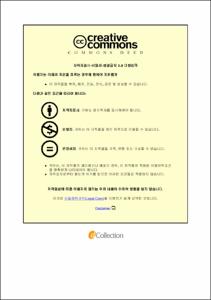Ulsan Univ. Repository
Thesis
General Graduate School
Mechanical & Automotive Engineering
2. Theses (Ph.D)
An Investigation on Spray Combustion Characteristics of Gasoline Compression Ignition Engine using Constant Volume Combustion Chamber system
- Abstract
- An Investigation on Spray Combustion Characteristics of Gasoline Compression Ignition Engine using Constant Volume Combustion Chamber system Department of Mechanical Engineering Nguyen Ho Xuan Duy The research of multiphase spray combustion in the gasoline compression ignition (GCI) engine conditions is carried out under constant volume combustion system (CVCC). Experiments were performed on a CVCC system to investigate the phenomena of the combustion process through simulated conditions of a diesel engine. In addition, the optical system is applied with the CVCC system to collect images of the combustion process with high data acquisition speed. The GB fuel mixtures applied in this study included varying the volume of biodiesel content in the mixture from 0, 10%, 20% and 40%. The main goal of the research is to provide comprehensive parameters for the GCI engine research process and consider the stable application of gasoline-biodiesel mixtures with the operating conditions of GCI engines in different levels. The non-vaporizing spray process has proven that the trends and rules of the spray formation process are not much different from those of basic fuels. At the same time, it also determines the influence of injection pressure and ambient density on spray morphology. Besides, the influence of chamber temperature is also mentioned and evaluated to affect the spray characteristics. Temperature has a special impact on spray cone angle when varying at high levels. It also shows the opposite trend for the effect on spray angle in studies related to the spray combustion process. In the next stage, the spray vaporization process is applied to evaluate the characteristics of the spray more thoroughly in a high temperature environment up to 1000K. The trends of liquid and vapor areas are determined to be inversely proportional to each other when the spray impinge on the wall. Finally, the combustion process is carried out with the change of important boundary conditions. The injection break time and ignition delay are identified to have a close relationship to determine the diffusion combustion process taking place under normal conditions. The results across the non-vaporizing spray, vaporization and combustion processes also indicate that gasoline fuel mixtures with high octane ratings will give more favorable results with the biodiesel component in the mixture less than 20%. Keywords: Gasoline-biodiesel, Injection pressure, Spray characteristics, Spray penetration length, spray cone angle, spray area, CVCC, Temperature, Oxygen concentration, Heat released rate, Ignition delay, flame development, high-octane fuel.
- Issued Date
- 2024
- Awarded Date
- 2024-08
- Type
- Dissertation
- Alternative Author(s)
- NGUYEN HO XUAN DUY
- Affiliation
- 울산대학교
- Department
- 일반대학원 기계자동차공학과
- Advisor
- Ock Taeck Lim
- Degree
- Doctor
- Publisher
- 울산대학교 일반대학원 기계자동차공학과
- Language
- kor
- Rights
- 울산대학교 논문은 저작권에 의해 보호받습니다.
- Appears in Collections:
- Mechanical & Automotive Engineering > 2. Theses (Ph.D)
- 파일 목록
-
-
Download
 200000806961.pdf
기타 데이터 / 5.43 MB / Adobe PDF
200000806961.pdf
기타 데이터 / 5.43 MB / Adobe PDF
-
Items in Repository are protected by copyright, with all rights reserved, unless otherwise indicated.